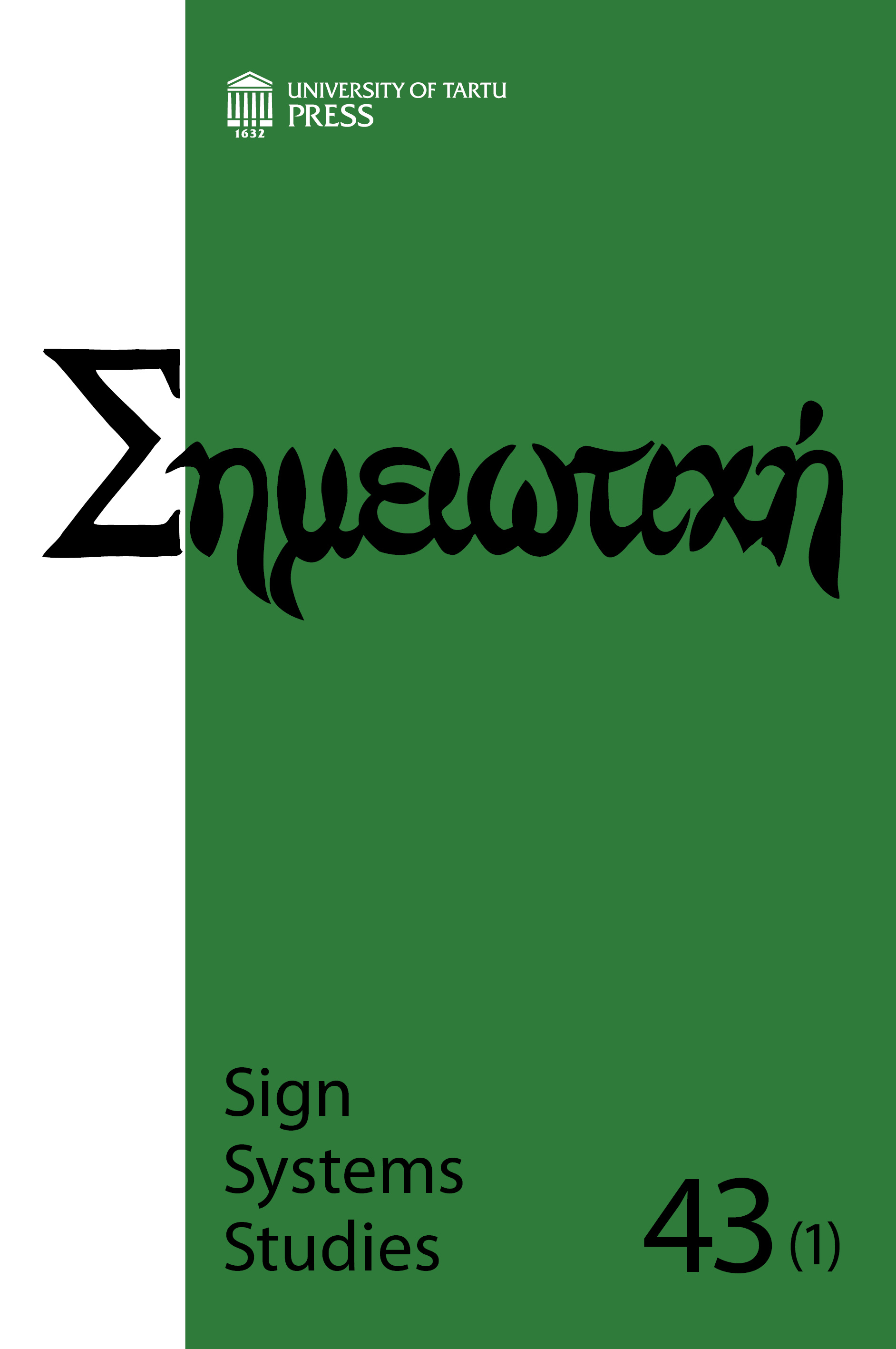Symptom without transcendental syntax
DOI:
https://doi.org/10.12697/SSS.2015.43.1.02Keywords:
symptom, subjectivity, anti-language, social semiotics, Little HansAbstract
This paper aims at investigating the Freudian symptom as an individual anti-language involved in a semiotic antagonism towards the internal logonomic system. In Freudian-Lacanian psychoanalysis, the symptom is interpreted according to transcendental and atemporal principles. Leaving aside these principles, we argue for a social semiotic approach in which the meaning of symptom is determined by its antagonistic relationship to the logonomic system, and also by its converted link with the repressed object in a specific socio-cultural context. The symptomatic antagonism is marked by a hypocritical and ambivalent relationship with the logonomic system and the repressed entity. The duplicitous semiosis of the symptom refers to rhetorical transformations made to reach a compromise between the contradictory poles of the law and the forbidden phenomenon. As regards the relation of the symptom to subjectivity, the symptom emerges as a conjuncture in which the subject of statement is related to the subject of speaking in a conflicting way. Accordingly, the former as the replica of a legisign-subjectivity is related symptomatically to the latter as a mere sinsign not preceded by any ideological subjectivity. The symptom is like a hinge on which the opposing doors, namely consciousness and unconsciousness, turn. Finally, the case of Little Hans will be analysed proceeding from the antagonistic aspects of symptom.Downloads
Download data is not yet available.
Downloads
Published
2015-06-10
How to Cite
Veisi Hasar, R. (2015). Symptom without transcendental syntax. Sign Systems Studies, 43(1), 29–47. https://doi.org/10.12697/SSS.2015.43.1.02
Issue
Section
Articles


